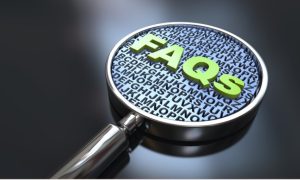Table of Contents
Are you planning on starting your own business but need help registering as a sole trader? Worry not; we’ve got you covered! A sole trader is an individual who runs their own business and is solely responsible for its finances and operations. In this blog post, we will guide you through the process of registering as a sole trader, including choosing a business name, checking if you need any licenses or insurances, registering for a self-assessment tax return, opening a separate bank account for business transactions, and registering for VAT (if required).
We’ll also discuss the legal obligations of a sole trader, such as keeping accurate business records and submitting an annual tax return. Lastly, we’ll answer the important question of how much tax a sole trader pays. So, let’s get started on your journey towards becoming a successful entrepreneur!
What is a Sole Trader?

Starting a business is exciting, but navigating the different business structures can be overwhelming. A sole trader is a popular structure for small businesses and freelancers. As a sole trader, you are the sole owner of your business, with complete control over its management and operations. You get to keep all the profits and make all the decisions without sharing them with anyone else.
One of the significant advantages of being a sole trader is that it’s relatively easy and inexpensive to set up. Compared to other business structures, such as partnerships or companies, there’s no need for complex legal documents or extensive registration processes. Instead, you can register as a sole trader and start operating your business with just a few steps.
Benefits of Registering as a Sole Trader
One of the primary benefits of registering as a sole trader is the freedom and flexibility it provides. As a sole trader, you have complete control over the business, allowing you to make decisions quickly and efficiently without consulting with anyone else. Additionally, registering as a sole trader simplifies accounting and tax procedures, making it easier to manage your financial planning and focus on growing your business.
This streamlined approach also means that setting up as a sole trader is generally less expensive than setting up a company, providing an excellent option for those working with limited resources.
Who Can Register as a Sole Trader?
When registering as a sole trader, anyone self employed and operating as an individual can do so. This means that freelancers, consultants, and small business owners who operate without a company structure can register as sole traders.
However, it’s important to note that being a sole trader also means taking on personal liability for any debts incurred by the business. Therefore, understanding the legal and financial obligations is crucial before deciding if registering as a sole trader is the right choice for your business.
How to Register as a Sole Trader?

Registering a business as a sole trader could be the right option if you want to start a business. It’s an ideal structure for those who want complete control over their business decisions and simplified accounting procedures. Becoming a sole trader is also cost-effective compared to setting up a company.
However, it’s important to understand the legal and financial obligations before registering. This involves gathering personal and business information and acquiring necessary licenses or insurance. Seeking professional advice can ensure compliance with regulations and proper registration as a sole trader.
Choose a Business Name
Selecting a business name is essential when registering as a sole trader. Your business name is potential customers’ first point of contact and should be chosen thoughtfully. A well-chosen name can help your business stand out from competitors while conveying your brand’s values and message. In addition, it should be unique and memorable and indicate your products or services.
To choose a business name:
- Start by brainstorming ideas relevant to your business and aligning with your brand identity
- Research existing businesses to ensure you do not infringe on trademarks or registered names
- Check if the domain name and social media handles are available for your chosen name
A unique and memorable business name will help you establish a strong online presence and make it easier for customers to find you online.
Check if You Need Any License or Insurance
A business as a sole trader may require obtaining specific licenses or insurance. Therefore, before registering, verifying if your industry or location necessitates obtaining any permits or coverage to conduct your business lawfully is crucial. Please obtain the necessary licenses to avoid legal repercussions and costly fines.
Some common types of licenses include tax registration, business registration, and professional permits. Additionally, various insurance policies such as liability insurance, health insurance, and workers’ compensation might be mandatory based on your type of operation and location. Therefore, it is essential to research and understand the legal requirements before registering as a sole trader.
Register for Self-assessment Tax Return
To work as a sole trader, you must register for a self-assessment tax return with HM Revenue and Customs (HMRC). This process requires you to provide personal information such as name, address, and national insurance number. You’ll also need to provide details about your business activities and income.
Once you’ve completed the registration process, keeping accurate records of your income and expenses for tax purposes is important. This will make filing your taxes much easier and help ensure that you pay the correct amount of tax. Failing to register or pay taxes correctly can result in penalties from HMRC, so it’s important to take this step seriously.
Open a Separate Bank Account for Business Transactions

As a sole trader, it’s essential to keep your personal and business finances separate, and opening a separate bank account for your business transactions is an effective way to do so. By doing this, you can avoid confusion between personal and business expenses and accurately track your income and expenses. It also simplifies tax preparation by clearly recording your business transactions.
When choosing a bank, look for services tailored to small businesses, such as low fees and online banking. Keeping accurate records of all financial transactions is crucial to stay organised and compliant with tax laws. Consult with a financial advisor or accountant if you have any questions or concerns about managing your finances as a sole trader.
Register for VAT (if required)
If your business’s taxable turnover exceeds the threshold, you must register for Value Added Tax (VAT). It is a consumption tax levied on goods and services in the UK. As a registered business, you must charge VAT on all taxable goods or services you supply and submit regular VAT returns to HM Revenue and Customs (HMRC).
Registering for VAT can be done online through the government’s website or postal mail. The registration process requires providing key details about your business, such as its name, address, and expected turnover. Once registered, you will receive a unique VAT registration number that must be included on all invoices.
Legal Obligations of a Sole Trader
As a sole trader, it is crucial to understand your legal obligations and ensure that you comply with them. Penalties or legal action may arise from failure to comply. Registering as a sole trader involves informing the relevant authorities of your business and obtaining any necessary licenses or permits. Moreover, keeping accurate financial records and fulfilling tax obligations are essential responsibilities of a sole trader.
Additionally, personal liability for debts incurred by the business means it’s vital to consider insurance coverage to mitigate risks. Finally, complying with legal requirements can build trust with stakeholders and contribute to the longevity of your business.
Keeping Accurate Business Records
Maintaining accurate records is essential to running a business as a sole trader. Keeping track of income, expenses, and other financial transactions helps monitor the financial health of your business and ensures timely compliance with tax laws. Accurate record-keeping also enables you to make informed decisions about the growth and expansion of your business.
Many software programs and apps can assist in maintaining accurate records, making it easier to manage finances, even for those without a background in accounting. As a sole trader, it’s crucial to regularly review your records to ensure their accuracy and rectify any discrepancies promptly.
Submitting an Annual Tax Return
As a sole trader, submitting an annual tax return is a crucial obligation that must be addressed. This process involves reporting all your business income and expenses to the government and paying any taxes owed. Keeping accurate records throughout the year can make the process easier and help avoid penalties for late payments or non-compliance.
It’s important to note that sole traders may also be required to pay estimated quarterly taxes based on their income level. Overall, timely submission of your annual tax return is essential for maintaining compliance with legal obligations and avoiding potential financial consequences.
Paying Income Tax and National Insurance
As a sole trader, it’s important to understand your legal obligations when paying Income Tax and National Insurance. You are responsible for paying Income Tax on your business profits, and National Insurance contributions are also required on your earnings. To ensure compliance, it’s essential to register with HM Revenue & Customs (HMRC) and file a self-assessment tax return each year.
Keeping accurate records of all income and expenses throughout the year can help you accurately calculate your tax liability and avoid any penalties or fines for late payments. Seeking professional advice from a qualified accountant can also help you navigate the complex tax system and minimise your tax liability.
How to Update Registration Details?

Updating registration details is a crucial step in managing your business. Whether changing your business address or adding a new product line, keeping your information up-to-date with the local government agency is important. To update your registration details, you’ll need to understand the process and requirements of your local agency.
This may include providing updated business information and documents and paying necessary fees. Seeking professional advice or assistance can help make the update process smoother and minimise any issues that may arise. In addition, keeping your registration details current can avoid potential legal issues and ensure your business operates within the law.
How Much Tax Does a Sole Trader Pay?
As a sole trader, it’s crucial to understand the tax obligations and liabilities you face. By registering for Self Assessment with HM Revenue & Customs (HMRC), you’ll be responsible for paying income tax and National Insurance contributions on your profits.
Maintaining accurate records of all business income and expenses ensures correct tax calculations. Seeking professional advice from an accountant or tax specialist can help you comply with tax regulations while optimising available tax allowances and deductions, minimising the amount of tax paid as a sole trader.
Conclusion
Registering as a sole trader is an excellent way to start your own business and take control of your career. It’s a great way to gain flexibility regarding working hours, earnings potential, and work type.
Registering as a sole trader also means that you’re responsible for submitting annual tax returns, keeping accurate business records, and paying Income Tax and National Insurance. However, it is important to note that registering as a sole trader has legal obligations that must be fulfilled.
FAQ – How to Register as Sole Trader?

Is it free to register as a sole trader?
No, registering as a sole trader is not free. In most countries, a small fee is associated with the registration process. The fees may vary depending on the country or state you live in.
To determine the exact fees for registering as a sole trader, it is best to consult your local government website or business advisor. They can provide more information about the registration process and any associated costs.
What tax does a sole trader pay?
You are required to pay income tax on your profits as a sole trader. In addition, if your annual turnover exceeds a certain threshold, you may also need to pay Goods and Services Tax (GST). Therefore, maintaining accurate records of your income and expenses is crucial for tax purposes.
To ensure compliance with tax regulations, it is recommended that you consult with a tax professional who can help you understand your specific tax obligations. This can help you avoid any potential penalties or legal issues in the future.
What documents does a sole trader need?
In the UK, a sole trader must maintain accurate records of all business income and expenses. This includes invoices, receipts, bank statements, and other pertinent documents. Additionally, you must file a Self Assessment tax return each year and keep records of your National Insurance contributions. Seeking professional advice from an accountant or tax specialist can help ensure you have all the necessary documents and meet your obligations as a sole trader in the UK.
Why should I register as a sole trader?
Registering as a sole trader legally recognises your business, allowing you to operate under your name or choose a business name. As a sole trader, you have complete control over your business and finances.
Registering can also make obtaining loans and other financing forms easier. Overall, registering as a sole trader is smart if you want to establish a legitimate and independent business with the flexibility to operate on your terms.
Can a sole trader have a business name?
Yes, a sole trader can operate under a business name in the UK. However, it is important to register your business name with the government and ensure that it does not infringe on any existing trademarks or intellectual property rights. Using a business name can help you establish a strong brand identity and attract customers while maintaining the benefits of being a sole trader, such as complete control over your business.


